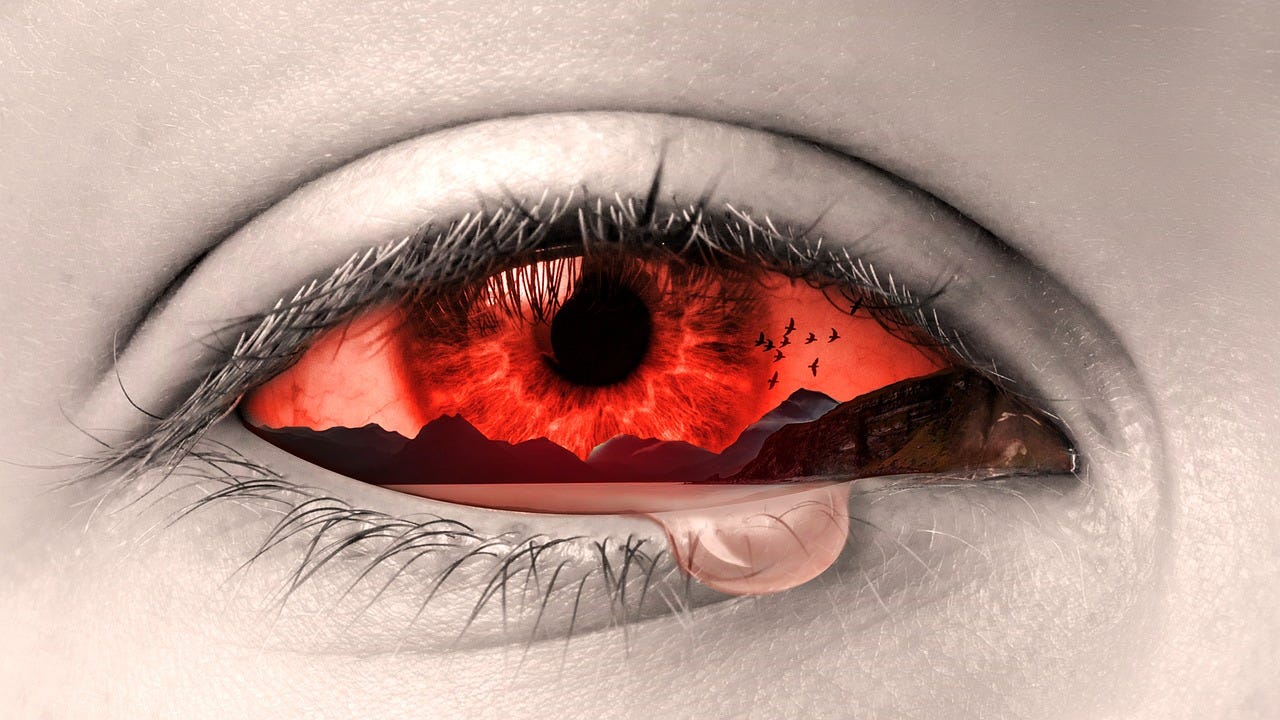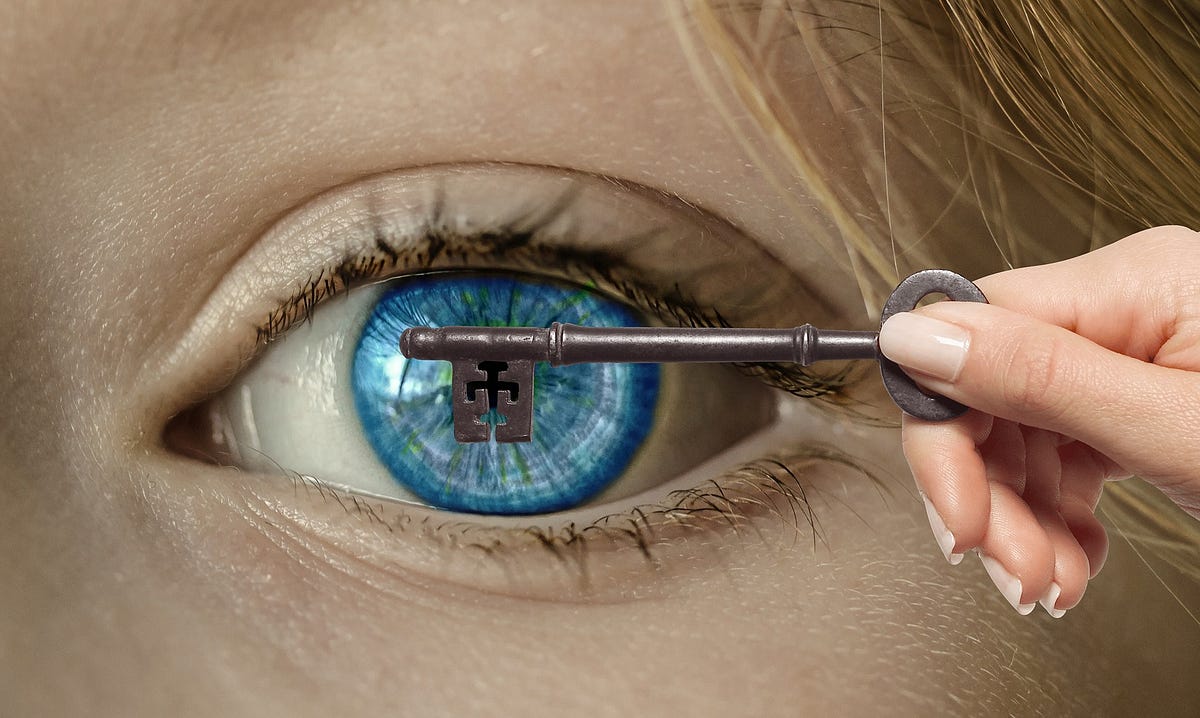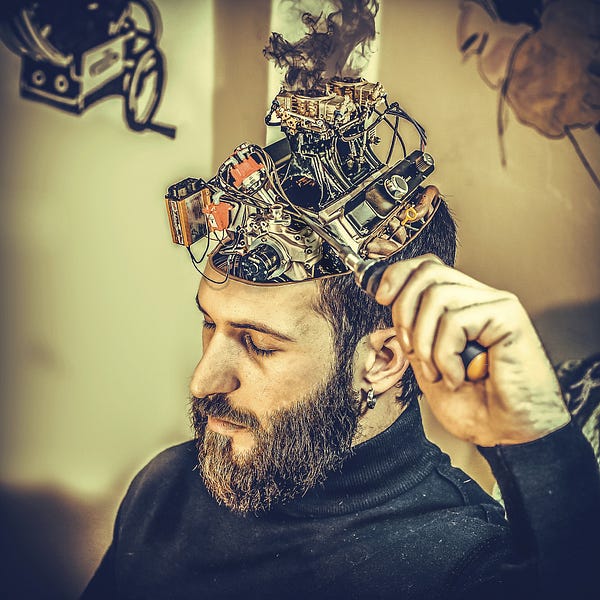
“Think of it this way: the input remains the same, so the output has to remain the same. How, then, can you ever create anything new?” — Dr Joe Dispenza
To obtain all the information on which to base a sound strategy takes a concerted effort. This means looking beyond the confines of your organisation, breaking beyond the constraints of your industry and in some cases looking to emerging trends and information to entirely reimagine your business.
We form our worldviews based on the information we both digest and “choose” to digest. That information feeds our thoughts and those thoughts form our realities. So the more diverse the information, the more diverse our options to innovate. Let’s explore why it is a challenge to obtain new information in the first place.
That is the focus of this Thursday Thought.

The great neurologist and author Oliver Sacks wrote about a man named Virgil. Virgil had been blind since childhood, and now, after a successful operation, he could see. Virgil struggled with his new sense. His world “view” had been previously formed based on the information he had “received” as a non-seeing person. Now he was faced with a totally new world, one which caused him great anxiety. As a fifty-year-old man, Virgil was inundated with new information that his brain could not process.
Humans can only process a certain amount of information at any one time (of course, the amount of information varies from person to person). To [rocess and synthesise information uses up a lot of energy. Our brains already consume a lot of energy per body space, so the brain needs to be ultra-efficient. So then, how do we filter this information? How do we decide what information merits our energy? How do we choose what information merits access to our thought streams?
Enter the amazing RAS…
The Reticular Activating System

In the base of our brains, we have an amazing filtering system called the RAS, the reticular activating system.
The RAS consists of a series of neural networks and nerves. One of the main functions of the RAS is to filter information that is deemed important for our survival.
You know when you are looking to buy a new car and then you see that car everywhere on the road? This is often considered to be linked to the law of attraction, well, it kind of is. We focus on that new car and the RAS then acts as a detective seeking out that car.
The RAS is like an advanced recommendation engine for the way we experience in the world. If you watch thrillers on Netflix, the recommendation engine will recommend more thrillers or similar types of content. If you watch comedies, Netflix will recommend more comedies.
In a similar vein if we see the world as an amazing, life-affirming, positive place our RAS will seek validation of those thoughts. (I discuss this on next week’s Innovation show with author and entrepreneur Sandy-Joy Weston). Our thoughts have immense power over our reality.
From a business perspective, this all becomes vitally important.
Business Recommendation Engines
I am fortunate to have played professional sport with the best players in the world. I have worked in digital transformation, innovation delivery and now cultural transformation. I have read and interviewed leaders in their fields in emerging trends and technologies. The greatest lesson I have learned is that We cannot change business models until we first change mental models.
To change mental models we must discover and focus on new information and we must filter out old irrelevant information, such information often fuels limiting beliefs. At an organisational level, this has a major impact. An organisation is a mass of people. Over time the purpose of the organisation becomes diluted and distant. People either do not know why they do what they do or they have forgotten why they do what they do. Purpose gives way to rank, status and hierarchy and the organisation atrophies and entropies. So what does a leader need to do?
A leader must reinvigorate the purpose of the organisation so that the Why becomes bigger than the Try. A leader must recalibrate “The Organisational RAS”, weeding out old information, while filtering in new information. New information will feed new organisational thoughts and strategies and new thoughts will materialise as new realities (Just as it does with individuals).
“We are what we think. All that we are arises with our thoughts. With our thoughts, we make the world.” — Buddha
On this week’s innovation show we talk to 5-time TED speaker and author of “How to be Heard” Julian Treasure. Julian tells us how we filter what we hear as well as what we see.
“We teach our children how to read and write, but not how to speak and listen.” — Julian Treasure (5xTED talk speaker and author)
Our guest today is a leading sound expert and demonstrates via interviews with world-class speakers, professional performers and CEOs atop their field, the secret lies in developing simple habits that can transform our communication skills, the quality of our relationships and our impact in the world.
We welcome 5 times TED speaker and author of “How to be Heard: Secrets for Powerful Speaking and Listening” Julian Treasure
- We explore
- How listening and speaking affect one another
- Workspaces
- Our listening filters, and how to use them
- The 7 deadly sins of speaking and listening
- The 4 leeches of conversation
The 4 Cs of conscious communication:
- Commitment
- Consciousness
- Compassion
- Curiosity
RASA:
- Receive (pay attention to the other person)
- Appreciate (via little sounds)
- Summarise
- Ask
HARAH:
- Humility
- Awareness
- Respect
- Attention
- Humour
HAIL:
- Honesty
- Authenticity
- Integrity
- Love
Listen:
Soundcloud https://lnkd.in/gBbTTuF
Spotify http://spoti.fi/2rXnAF4
iTunes https://apple.co/2gFvFbO
Tunein http://bit.ly/2rRwDad
iHeart http://bit.ly/2E4fhfl
Julian has kindly offered our listeners 5 free videos to become a better speaker available here: https://www.juliantreasure.com/innovation/